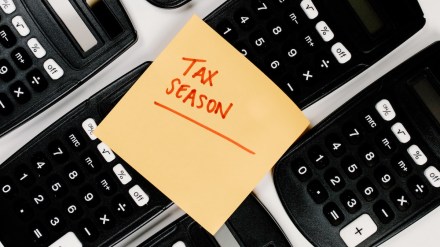Income Tax Return Due Date Extension AY 2023-24 News: More than 3 crore taxpayers have filed their returns till July 19. According to the Income Tax Department, the milestone of 3 crore ITRs has been reached seven days early this year, compared to the preceding year (AY 2022-23).
The data on the e-filing website shows that more than 2.9 crore returns have been verified by taxpayers while over 1.6 crore ITRs have been processed. Many tax filers have also received their refunds.
While the number of ITRs filed till July 19 is impressive, but around 3 crore returns are yet to be filed in the next 11 days before the Due Date, i.e. July 31. This raises a question as to why taxpayers wait till the last date or hope for an extension of the due date even while knowing that there is very little possibility of an extension.
There was no extension of the due date in the previous year. For AY 2023-24, Revenue Secretary also recently said the Finance Ministry was not contemplating any extension of the due date.
Also Read: Income Tax Return Revision for AY 2023-24: Who should file a revised ITR? Is there a penalty?
It is a general tendency, found amongst most of taxpayers, that they end up waiting till the last date for filing their returns in anticipation of the extension of due dates, according to Dr Suresh Surana, Founder, RSM India, a tax consultancy firm,
“It is recommended that returns should be furnished well in time as returns may fail to be furnished on the last day due to technical glitches on the website caused due to heavy internet traffic which result in interest and penalty consequences,” says Dr Surana.
No point in waiting for the due date extension
“As the due date gets close, more and more returns are filed. Filing towards the last few days has been a trend,” says Archit Gupta, CEO of Cleartax, an ITR filing platform.
However, taxpayers must note that now the due date is usually not extended, so it makes sense to file in time. In case taxpayers need help, they must seek expert assistance well in time, experts say.
“Taxpayers may wait till the last date or hope for an extension to file their returns due to reasons such as procrastination, the complexity of tax laws, gathering required documents, tax planning and optimization, and expecting changes or extensions. However, it is generally advisable to file taxes well before the deadline to ensure timely compliance and avoid potential penalties,” says Abhishek Soni, Co-Founder of Tax2win, an ITR filing platform.
Who needs to file ITR?
Dr Surana says that every taxpayer whose total income exceeds the basic threshold limit of Rs. 2,50,000 (Rs. 3,00,000 and Rs. 5,00,000 in case of senior citizens and super senior citizens) would be required to furnish their return on or before the due date u/s 139(1) of the IT Act.
Apart from the above, every taxpayer would also be required to furnish their return in the following indicative cases:
- Incurred expenditure of an amount or aggregate of amount exceeding Rs. 2 lakhs for travel to a foreign country for themselves or for any other person
- Incurred expenditure of amount or aggregate of amount exceeding Rs. 1 lakh on consumption of electricity during the financial year
- If the aggregate of TDS/ TCS during the financial year is Rs. 25,000 (Rs. 50,000 in case the taxpayer is aged 60 years or more)
- The deposit in one or more savings bank account of the person, in aggregate, is Rs. 50 lakhs or more during the financial year
“As such, not all persons are required to furnish their returns. Taxpayers with income below threshold limit would not be mandatorily required to furnish their returns,” says Dr Surana.
Be careful while filing ITR
CA Sandeep Agrawal, Director and Co-founder of Teamlease Regtech says income tax filing for individual taxpayers have been simplified significantly with the introduction of options to ‘Pre-fill’ the relevant income and tax information automatically while filing the returns online.
Additionally, Annual Information System (AIS), Tax Information System (TIS) and Form 26AA provide complete information about the Taxpayer’s income mainly from Salary and interest income, TDS and other taxes paid.
“Taxpayers shall use these available utilities and statements to ensure comprehensive and accurate reporting of income and taxes. This will reduce manual data entry and possibilities of errors can be avoided,” says Agrawal.
“Although a lot of salaried individuals can file their income tax return themselves using these utilities, there are several taxpayers who may income in the form of capital gains or income from Virtual Digital Assets (i.e. Crypto assets), etc. Individuals need to be careful while providing accurate information and shall refer to statements from Mutual Funds and Stock-brokers to avoid future interest and penalties,” he adds.
Experts also say that from this year onwards, individuals claiming deduction under Sec 80(G) for donations need to provide the Donation Reference Number which shall be available on the Donation Receipt or the Certificate.
“In case, an individual has made mistakes while filing the original Income Tax Return (ITR), s/he can revise the same any time before the end of the assessment year (i.e. within 12 months from the end of the financial year for which the ITR was filed). For example, an ITR for Individuals for the financial year ending March 2023, shall be filed by July 31, 2023, and can be revised by March 31, 2024. Currently, there are no penal provisions for revisions to ITR,” says Agrawal.
